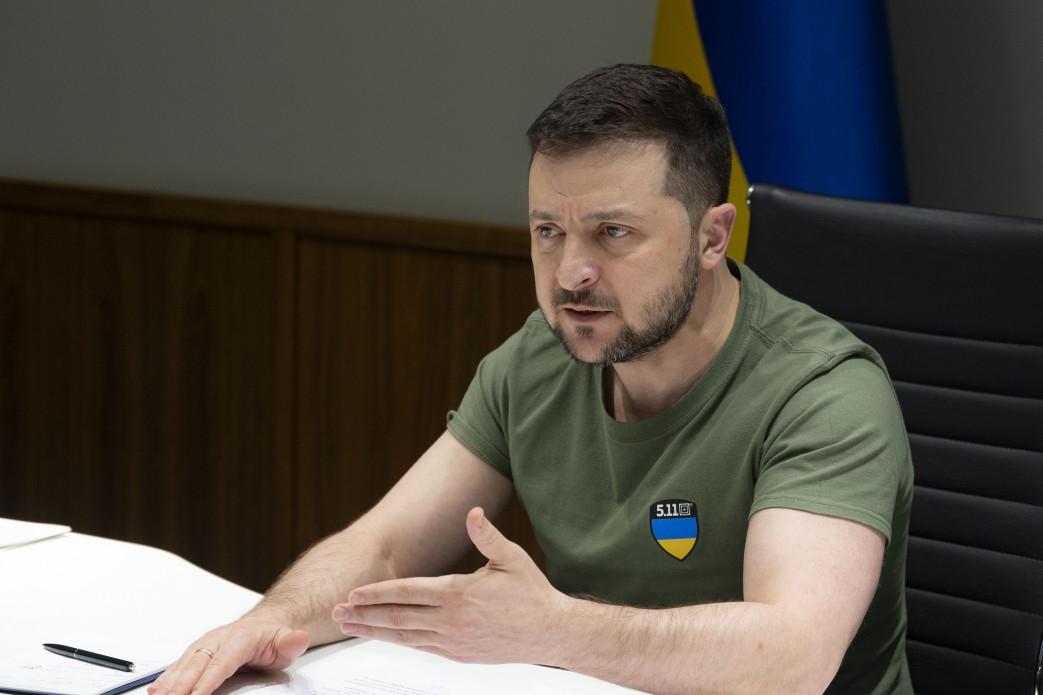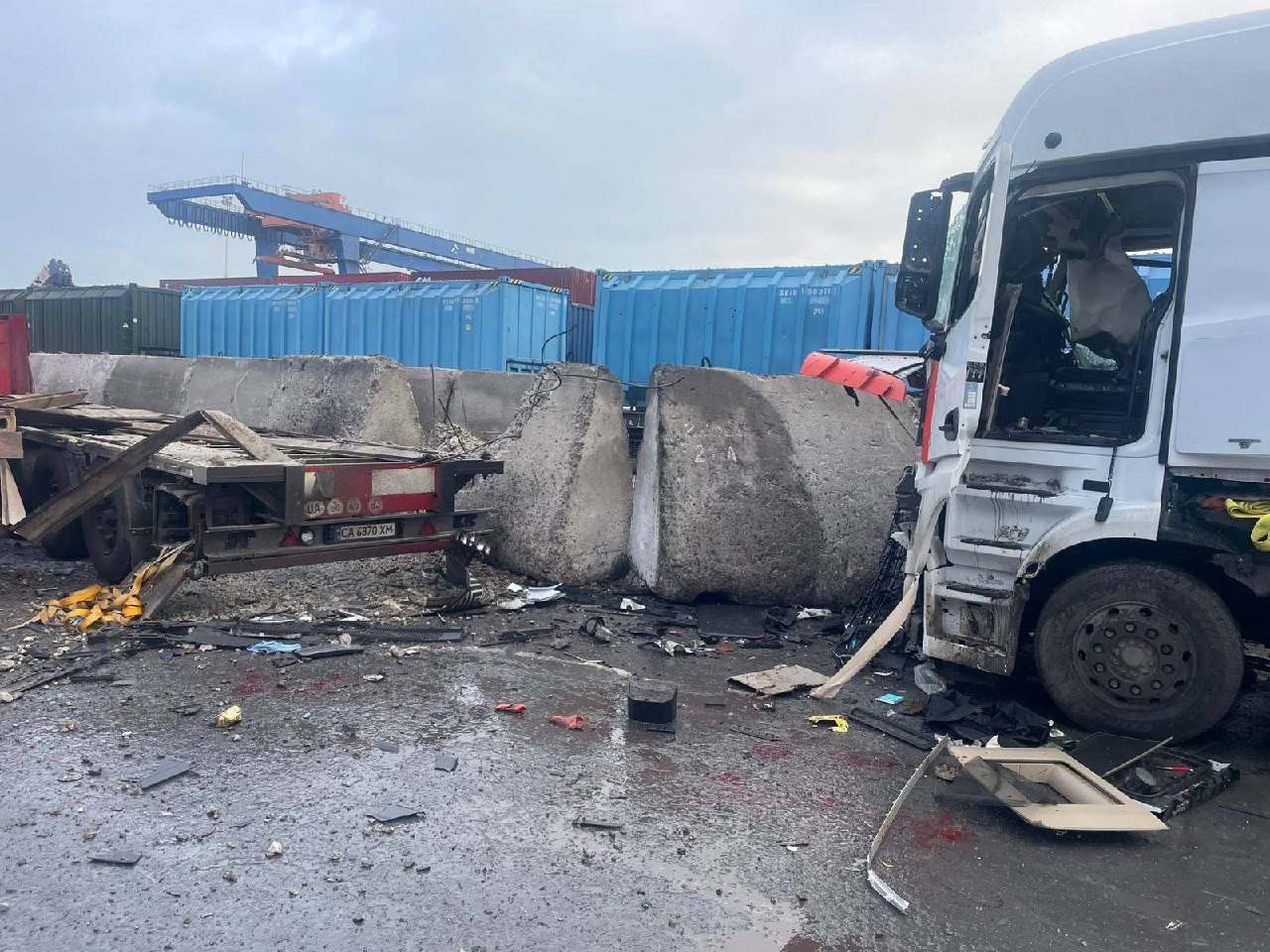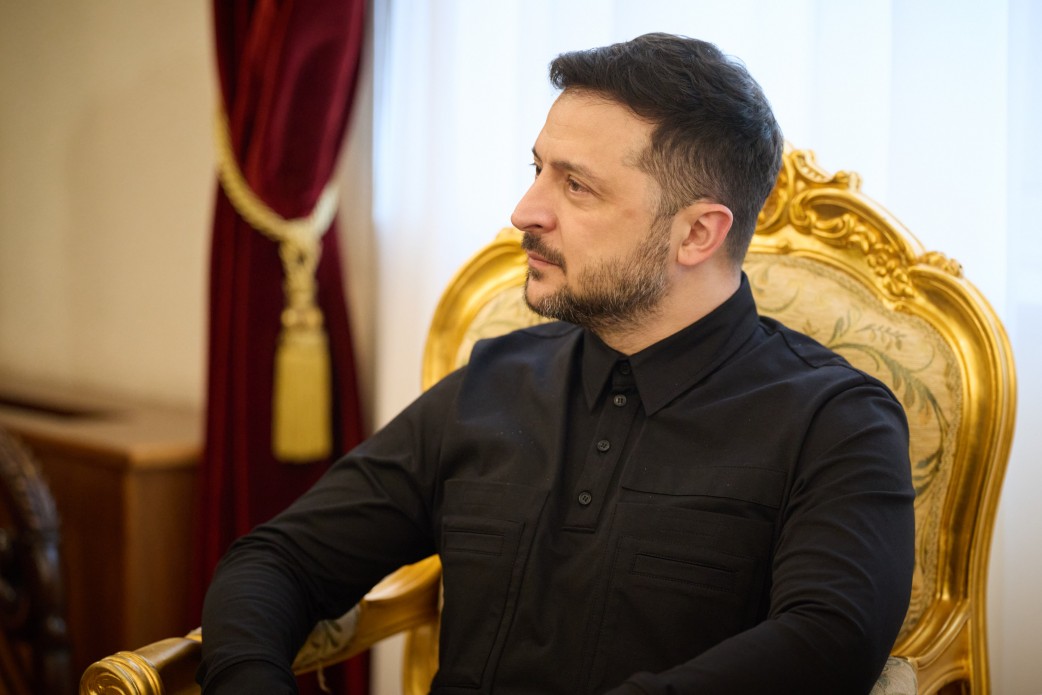Speech by President of Ukraine Volodymyr Zelenskyy to students of leading French universities
Today is the 77th day of Russia's full-scale war against our state. And it happens 77 years after the end of the largest war in Europe - World War II.
When that war ended, political leaders and nations sought to create a security architecture that would make it impossible to repeat the war in Europe. And when I say the word "security" now, I use it in the broad sense of the word. It is not only a military component, but also economic, political, educational, cultural and memorial.
Europeans have done a lot to ensure that the continent always has the opportunity to resolve any issues through dialogue. Through communication. So that it is not possible for one politician, one person or a group of politicians to provoke a large-scale war again, which will take thousands or even millions of lives.
And, by the way, the contribution of students, including French students, to such changes in Europe is extremely significant. Since May 1968, there has been no politician who would not fear that people would come to him and say: it is forbidden to forbid. But why, despite all this, all this history, do we in Europe now have no tool to stop Russian aggression, except the courage and wisdom of Ukrainian men and women who defend our state?
How did it happen that the whole security architecture that was created in Europe after World War II did not work? And not only did not work, but to a large extent did not even try.
77 days of brutal Russian war, which can truly be called a total war to destroy the Ukrainian people. Cities and villages in Ukraine were destroyed. You know this. There is nothing left of the city of Volnovakha in Donbas. Before this war about 20 thousand people lived there. Now it's all ashes. The half-million city of Mariupol is now just ruins. How many people are there now? Several tens of thousands out of half a million. At least 20,000 Mariupol residents were killed by Russian strikes at the city. Unfortunately, there are many such examples in Ukraine.
Today, 12 million people have been forced to flee the war and become internally displaced persons.
More than 10,000 Russian military crimes have been recorded. And this is just what is legally recorded as of this day.
How did all this become possible? And why are no global or European institutions enough now to stop this war?
You know, I don't want these questions to remain rhetorical. These questions really need to be answered, because these questions are actually about you and me, about Europe. About how we all live. From the Atlantic region to our cities, our communities in the Kharkiv region and in Donbas, which right now, right now, while we are here with you, are being fired upon by Russian troops from artillery, aircraft, and so on.
I was told that the rules of our meeting today provide for my address and the opportunity for five students to ask certain questions. I think this is still an unfair regulation. Five questions are not enough to understand a person and to understand the situation. And it will look like a privilege for a few when thousands listen to us. But I understand that you and I have limited time.
I'm also interested in asking you questions to hear what you think. So that it is really communication.
For example, about NATO. About world security. About the architecture of this security. About the 5th article of the Treaty. For years, Europe has feared Ukraine's accession to NATO, because if a war broke out with Russia - they said so - everyone would have to fight against it. I would rather say - for Ukraine.
But isn't that the point of NATO? Isn't that all for one? And if Russia goes further, for example to the Baltic countries, Lithuania, Latvia, Estonia - any country.
Will NATO fight against Russia, for example, for Latvia? Will Article 5 work then, given that most of you have never been to Latvia and may not even have ties to that country?
There is also another aspect to this. Russia has already started a war against Ukraine, but we are not in NATO. And then why are we not in the European Union? Russia has already started a war. And you see how it fights.
What else can you be afraid of now? And why does our common European home still have an internal division between those who were admitted and Ukraine? Which is behind the door, but at the same time fighting, defending European values, EU values: freedom and other fundamental values.
And here is my second question to you: why did one person, Vladimir Putin, decide to start a war? It was a wrong and catastrophic decision. But why did he still approve it?
And is there now in Europe, perhaps even in France or in any other country, a man or woman who can also start such a war against neighbors? Of course, I don't want that for anyone. But are we protected from this? Are you protected from this?
One more question of mine to you - why did the Russian military, when occupying the territory of Ukraine, torment people with such pleasure and so massively?
Why didn't they just shoot or capture or kill people like in war. Why did they rape, why did they torture people? Why did they cut off people's heads, fingers, why did they break legs? Why did Russian soldiers rape children in front of their parents? How can you - already adults - explain this? In your opinion, did they have just such an order or are they just like that?
For example, a nine-year-old girl. Or an eleven-year-old boy. What should be in the head of a Russian soldier who rapes them in front of their parents, in front of their mother? Hundreds of such crimes have been recorded. There was even a Russian soldier who raped a baby and recorded a video of it, and then showed it to everyone. And how many such cases were in the occupied territories, about which we do not know yet?
During World War II, the Nazis committed horrific crimes against all the nations of Europe. In particular, against Ukrainians and against Russians. For 77 years, much has been done to preserve the memory of those terrible crimes, which would ensure that they will never happen again. But why did the Russian military, when they came to Ukraine, start doing what the Nazis did? How did this become possible?
My next question to you is: when will justice be restored? Why is there still no tool in the world that can bring all war criminals to justice quickly? Exactly quickly.
Of course, our state will do everything to bring to justice every war criminal. And I am grateful to everyone who helps us. In particular, France. But there is an aspect of time. How long will it last? When will murderers and torturers receive sentences? And how to get them for trial, if they hide in Russia and if nothing changes there?
There are many people of the future and different professions among you, and there are lawyers among you. Let them find the answer.
So what can we do to speed up international justice? And what punishment do these criminals deserve? Specifically which one? What could be enough punishment for raping a child or shooting cars with refugees right on the roads just for fun? There were hundreds and thousands of such cases.
And my fifth question to you is not difficult - personal.
What influences politics and what influences the decision whether to engage in politics? Are you ready to get involved in politics? Would you like your father to be President? President of a state that defends itself in war and fights not just for independence, but literally for the right to life for its people? Or President of France - a state in peace?
I want to explain my feelings to you. The feelings when you have a double responsibility - both for the state, because you are the President, and for your family, which found itself in a very special situation.
When I decided to run for president, my daughter (she’s now 18) was against it - totally. She was aware of how much life would change. It is a question of publicity, a question of security, certain responsibility - of the children of the President already.
What do you think about it? And how would you feel now if you were the son or daughter of the President?
So, as I understand, we have little time. And I would like you to give answers to my questions. And I can answer yours. It is important for this meeting of ours to be truly communication. And I would like to hear from you.
At the end, I can ask the last question. If I get all the information from you.
Thank you for your attention!



















